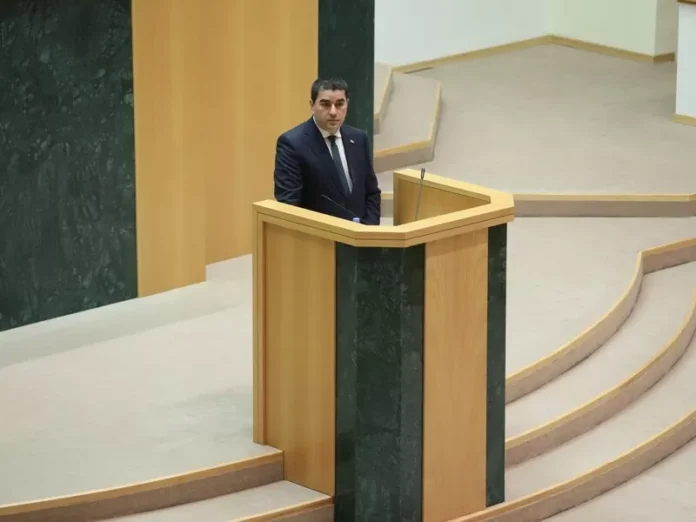On June 3, Speaker of the Georgian Parliament Shalva Papuashvili signed an analogue of the Russian «foreign agents» law, after President Salome Zurabishvili refused to approve it. This decision was announced during a briefing, the transcript of which was published on Facebook.
The new law, which was adopted by the Georgian Parliament in May, requires NGOs that receive foreign funding and engage in political activities to register as «foreign agents.» This move has sparked controversy and raised concerns about the state of democracy in Georgia.
The decision to sign the law was met with mixed reactions. Some see it as a necessary step to protect national security and prevent foreign interference in domestic affairs. Others view it as a threat to freedom of speech and civil society.
In his briefing, Speaker Papuashvili defended the law, stating that it is in line with international standards and will not restrict the activities of NGOs. He also emphasized that the law is aimed at ensuring transparency and preventing foreign influence in the country’s political processes.
However, President Zurabishvili, who has the power to veto the law, refused to sign it, citing concerns about its potential impact on civil society and the country’s image in the international community. She also called for further discussions and amendments to the law.
The decision to sign the law has also been met with criticism from opposition parties and civil society organizations. They argue that the law is a tool to suppress dissent and target NGOs that are critical of the government.
The controversy surrounding the law has also raised questions about the relationship between Georgia and Russia. The Russian «foreign agents» law, which was adopted in 2012, has been widely criticized for its restrictive measures and targeting of civil society organizations.
Some experts believe that the adoption of a similar law in Georgia could further strain the already tense relations between the two countries. Others argue that it could be a way for Georgia to distance itself from Russia and align with Western values.
Despite the concerns and criticism, the Georgian government remains firm in its decision to sign the law. Prime Minister Irakli Garibashvili stated that the law is necessary to protect the country’s sovereignty and national interests.
In response to the controversy, the European Union and the United States have expressed their concerns and called for a dialogue between the government and civil society to address the issue. They have also emphasized the importance of protecting the rights of NGOs and ensuring a democratic and pluralistic society.
In conclusion, the decision to sign the «foreign agents» law in Georgia has sparked a heated debate and raised concerns about the state of democracy in the country. While some see it as a necessary step to protect national security, others view it as a threat to freedom of speech and civil society. It remains to be seen how this law will be implemented and its impact on the country’s political landscape.

